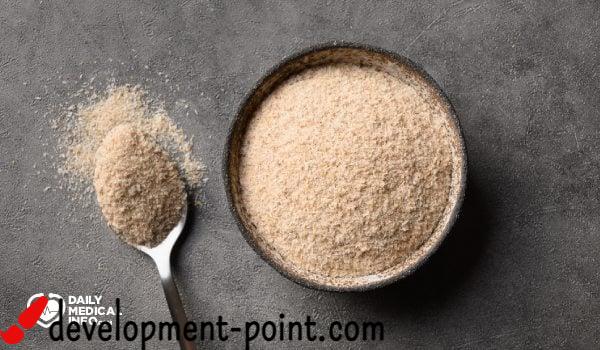The benefits of nankha, its potential harm, and how to use it
There are many herbs and plants that some use for therapeutic purposes, because of their potential health benefits, and among these herbs is the nanka plant, and since many may not know what this plant is and what its benefits are, we have prepared the following article for you to learn about the benefits of the nutmeg, the nutritional value of the plant, how to use it and some of its potential damages. And other information, be sure to follow the following paragraphs.
What is nankha?
Ajwain or Trachyspermum amm is a plant that produces small fruits similar to cumin and caraway seeds. It belongs to the family of plants that produce celery, coriander, fennel, parsley and parsnip.
It is a famous Indian food, which has a bitter and strong taste, and an aroma similar to that of thyme, and the seeds or fruits of this plant are dried, roasted or ground and added to spice mixtures. Its color ranges from green to brown.
Nutritional value of the nankha plant
The fruits or seeds of this plant contain many nutrients, and are high in fiber, antioxidants, minerals and other vitamins. Each spoonful of nankha contains the following:
- Calories: 5
- Protein: less than 1 gram.
- Fat: less than 1 gram.
- Carbohydrates: 1 gram.
- Fiber: 1 gram.
- Sugar: 0
It also contains other important nutrients, most notably:
- potassium;
- Calcium.
- Iron.
- Fatty acids.
Nanjing benefits for the body
The seeds or fruits of the nansha contain a small amount of oil known as nankha oil. This oil contains thymol (the substance that contributes to the smell of fruit), and thymol is commonly used in the treatment of various health problems, and this oil also contains anti-fungal and anti-bacterial properties. The potential benefits of nan for the body include:
1- The benefits of starch for the colon and the abdomen
Nana contains active enzymes that improve the flow of stomach acids, which help relieve indigestion and bloating and reduce gas. This plant can also help treat peptic ulcers, as well as any ulcers present in the esophagus or intestines, provided that it is used in a moderate amount.
2- Prevention of infection
The essential oils in the nutmeg plant can help fight the growth of bacteria and fungi, as well as help fight some types of bacteria, such as salmonella and E. coli, which can lead to food poisoning and other stomach problems.
3- Lowering blood pressure
The results of some animal experiments suggested that thymol in this plant could help prevent calcium from entering the blood vessels of the heart, which could help lower blood pressure.
4- Reducing cough and congestion
One of the benefits of nanning is that it can relieve coughing or coughing, and it can also help get rid of mucus in the nose, which improves breathing. It can also help widen the bronchial tubes, which can be beneficial for asthmatics.
5- Reducing tooth pain
As mentioned earlier, this plant contains anti-inflammatory properties and important essential oils. This can help relieve and reduce tooth pain. Thymol can also help improve oral health, by fighting fungi and bacteria in the mouth and helping to get rid of them.
6- Reducing joint pain
Another potential benefit of nansha is that it can help relieve pain and swelling. A paste can be made from the fruits of this plant and placed on the joints, to treat and relieve pain caused by arthritis. You can also put a little of this plant in a basin filled with hot or warm water and sit in it as well.
Notice; Most of these benefits have not been subject to sufficient research and studies, so we warn that you should consult your doctor before using this plant for these purposes, especially if you suffer from a specific health problem.
How to use the nankha plant
This plant is usually ground and added during the last stage of cooking many Middle Eastern meals and recipes. There are other ways to use this plant to obtain its potential benefits for the body, including the following:
- Making nankha bread.
- Use it in chicken, fish, legumes or lentil dishes.
- It can be used to season foods.
- It can be mixed with fenugreek, turmeric or mustard, making a liquid that can be used in different ways.
- It can be added to water and boiled, to make nansha water that can help improve digestion or sometimes to reduce weight.
Possible side effects
After knowing the potential benefits of nan for the body, let’s take a quick look at some of the harms and side effects of this plant. It may include the following:
- Consuming large amounts of the seeds or fruits of this plant can lead to stomach gases, which may cause acidity.
- Some people are allergic to the nectarine, which may cause allergic symptoms such as dizziness, lightheadedness and vomiting.
- Some of the biologically active components of this plant have a strong effect, which may cause infections in the mouth for some, and this may result in a feeling of burning in the mouth or the appearance of ulcers.
- Oral consumption of large quantities of this plant is considered poisonous and may lead to poisoning.
- Using a large amount of nanite supplements can increase the risk of bleeding during or after any surgery.
important warning:
Pregnant and lactating women should avoid using this plant, as some studies have indicated that the components of this plant can cause serious health problems such as birth defects or miscarriage.

